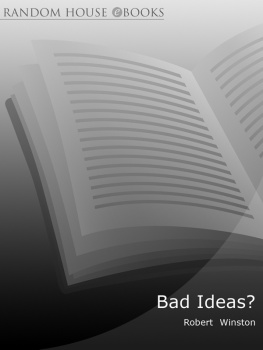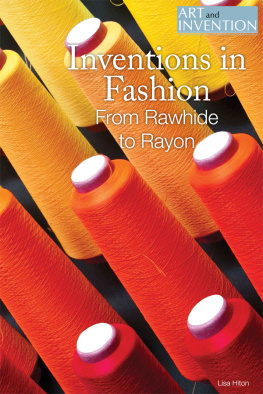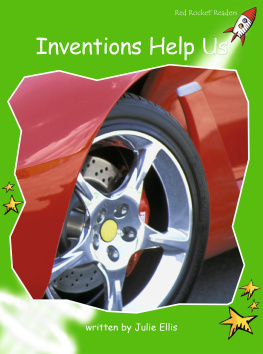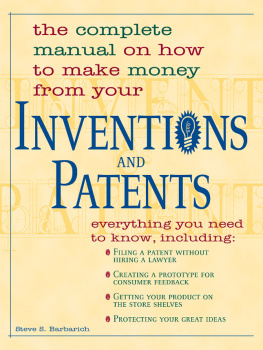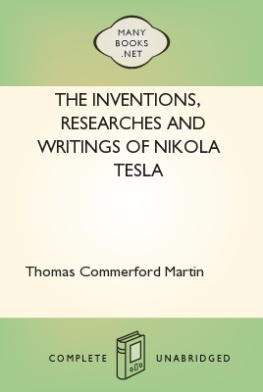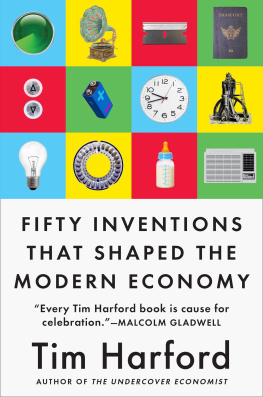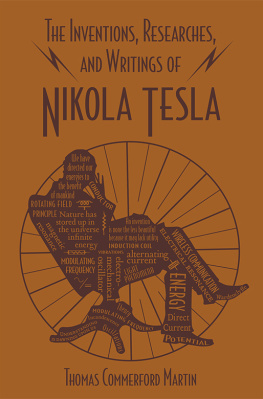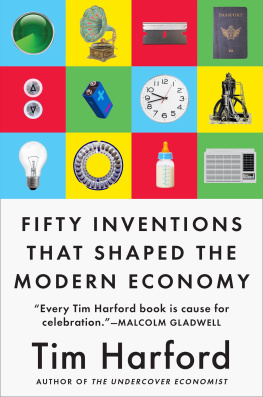BAD IDEAS?
An arresting history of our inventions
ROBERT WINSTON

BANTAM PRESS
LONDON TORONTO SYDNEY AUCKLAND JOHANNESBURG
This eBook is copyright material and must not be copied, reproduced, transferred, distributed, leased, licensed or publicly performed or used in any way except as specifically permitted in writing by the publishers, as allowed under the terms and conditions under which it was purchased or as strictly permitted by applicable copyright law. Any unauthorised distribution or use of this text may be a direct infringement of the authors and publishers rights and those responsible may be liable in law accordingly.
Version 1.0
Epub ISBN 9781409094401
www.randomhouse.co.uk
TRANSWORLD PUBLISHERS
6163 Uxbridge Road, London W5 5SA
A Random House Group Company
www.rbooks.co.uk
First published in Great Britain
in 2010 by Bantam Press
an imprint of Transworld Publishers
Copyright Robert Winston 2010
Robert Winston has asserted his right under the Copyright, Designs and Patents Act 1988 to be identified as the author of this work.
A CIP catalogue record for this book is available from the British Library.
ISBNs 9780593060278 (cased) 9780593060285 (tpb)
This book is sold subject to the condition that it shall not, by way of trade or otherwise, be lent, resold, hired out, or otherwise circulated without the publishers prior consent in any form of binding or cover other than that in which it is published and without a similar condition, including this condition, being imposed on the subsequent purchaser.
Addresses for Random House Group Ltd companies outside the UK can be found at: www.randomhouse.co.uk The Random House Group Ltd Reg. No. 954009
The Random House Group Limited supports The Forest Stewardship Council (FSC), the leading international forest-certification organization. All our titles that are printed on Greenpeace-approved FSC-certified paper carry the FSC logo. Our paper procurement policy can be found at www.rbooks.co.uk/environment
Typeset in 11/14pt Sabon by Falcon Oast Graphic Art Ltd Printed and bound in Great Britain by Clays Ltd, Bungay, Suffolk
2 4 6 8 10 9 7 5 3 1

Contents
To Kathy Sykes,
Professor of Sciences and Society at the University of Bristol,
who has been an inspiration to so many people
It is not thy duty to complete the work,
But neither art thou free to desist from it.
R. T ARFON . Aboth: 2,15 (c.70 CE)
Also by Robert Winston
INFERTILITY
GETTING PREGNANT
MAKING BABIES
GENETIC MANIPULATION
THE IVF REVOLUTION
SUPERHUMAN (with Lori Oliwenstein)
HUMAN INSTINCT
THE HUMAN MIND
WHAT MAKES ME ME
THE STORY OF GOD
ITS ELEMENTARY
A CHILD AGAINST ALL ODDS
EVOLUTION REVOLUTION
Preface and
Acknowledgements
Science becomes dangerous only when it
imagines that it has reached its goal.
G EORGE B ERNARD S HAW , Preface on Doctors
(1909) to The Doctors Dilemma
During the late 1990s I had the privilege of chairing the House of Lords Science and Technology Committee. During the three years of my chairmanship, we set up a number of inquiries into scientific issues, from the disposal of nuclear waste to the medicinal uses of cannabis. But the one closest to my heart was the inquiry into science and society, which lasted for most of 1999 and part of 2000. The inquiry was launched because it seemed that the scientific community had an uneasy relationship with many members of the public, with policy-makers, with journalists and to some extent with government.
Among various concerns about public mistrust of science, there had been a major debacle over the use of genetically modified crops, and there had been the unedifying photograph of a cabinet minister feeding his little daughter a beefburger in an effort to persuade people that British beef was free of bovine spongiform encephalopathy. It seemed that human embryo research was almost the only scientific issue on which the public appeared to trust the scientists and the information those scientists were giving them, and to recognize its value for healthcare.
So, having taken copious evidence, we argued in our report that there needed to be much better public engagement with science; that merely attempting to increase public understanding of science was really inappropriate. And since then a number of colleagues have become much more involved with thinking about and responding to the difficult issues raised by implementing advancing human technology. But until quite recently, the idea of listening to the public and responding to public concerns seemed almost anathema to many scientists. So various far-thinking people, and notably my friend and colleague Professor Kathy Sykes of Bristol University, raised the idea of dialogue with the public on these complex issues.
The thesis behind this book namely, that the key to successful living in a society dominated by advancing technology lies in better public engagement with science and technology will seem strange to many people. Yet it seems increasingly obvious that if we are to avoid harm from the increasingly powerful tools we have, we need to have much better methods of control. This control cannot be exercised solely by governments: history shows, as this book recounts, that governments do not always use scientific knowledge wisely. Nor can control simply be left to my community the scientists even though it is clear that most scientists are strongly altruistic and genuinely committed to improving the health and welfare of the society in which they live. So in my view, people from all sections of the community have a responsibility to learn and understand more about science in order that, in democratic societies at least, they will have a more powerful say in how science is used.
This book has been difficult to write, and in the first place I am deeply in debt to my publishers, Transworld, and particularly Sally Gaminara, who had sufficient faith in me to delay publication by a whole year while I struggled to make a very imperfect text into something slightly less imperfect.
My old friend Matt Baylis has as usual been a tower of strength and energy in seeking out so many matters of interest in the research for this book. We had been discussing the ideas behind the book for some years and had even pitched it as the theme for a television series. Matts wide knowledge, his remarkable enthusiasm for all things scientific and historical, and his wonderful sense of humour have meant it has been a continued joy to work with him on this difficult project.
It is my very good fortune to have had Gillian Somerscales as an editor for another of my books. Her intelligence and clarity of thought have made a massive difference to my imperfect text, and as usual her input has been made with tact and with great insight.
Lira, my wife, has been, as ever, remarkable. She has been forbearing and tolerant when I am preoccupied by writing and thinking, and always deeply encouraging. Her wisdom in suggesting improvements for the text has helped make this a better book. Rachel Ward, my assistant and secretary, has been amazingly supportive. Her invaluable interest in and enthusiasm for this project was hugely helpful in persuading me to continue with it in the usual moments of depression.

